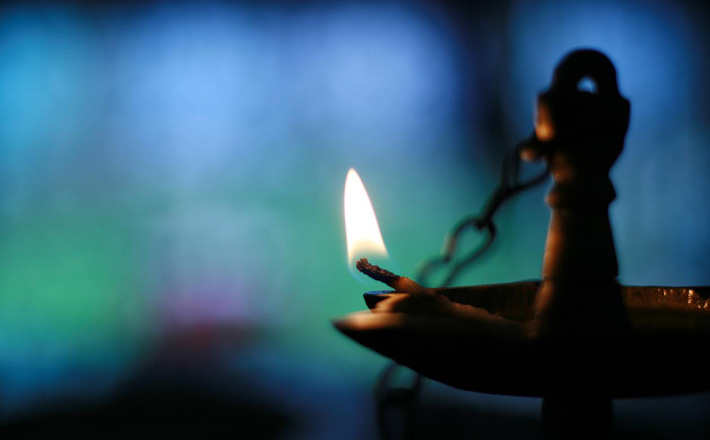Commentary on Psalm 33:12-22
So we wait.
Sitting here on earth we wait in hope and faith. We sit with the blanket of God’s promises resting upon our laps. We stare out the window waiting for God to roll down our street in brand new Cadillac or pushing a pram with a cooing child. We wait, we watch. What we are looking for is hard to describe. We are looking for a small bit of sustenance when the ground dries up. We are looking for a little life in a deathly world. We are searching for the smell of paper whites as we walk into the doctor’s office. We are watching for the easy ways in which children hug each other. We are listening for all those echoes of God’s promises in the world. These faint echoes that resemble and initiate what will become.
The truth is, we don’t hear these echoes as often as we’d like. Most of our life is spent waiting for another vision. Like Hannah, like Abraham and Sarah, like Israel in Babylon we rest our heads on God’s promises, but never stop waiting for them to be fulfilled. This difficult waiting is exacerbated by our finitude. We are so small and this world is so big. We can barely understand the vagaries of our own lives, let alone be entrusted to understand the inner and outer workings of the spinning universe. We lack perspective when we look at the world and tend to flatten the diversity of this wild place. Our finitude drives us to create our worlds in our own images, which is not surprising given the circumstances of our own making. Given our limited vantage and the unpredictable action of God, the Christian life requires waiting on God.
Waiting is hard. It is fitting that this lectionary passage comes during ordinary time within the liturgical season because what is more ordinary than waiting. Verse 20 sounds like the Psalmist is trying to convince herself that she is not sick and tired of waiting. The truth is, there is no school that teaches us how to wait. The anxieties of our lives seem implacable and we employ every trick to try and cope in the meantime. We convince ourselves that we have been faithful, that we are happy, and that the wait isn’t so bad, but mostly it is miserable. I hear deep need in the final verse of the lectionary passage. “Let your steadfast love, O Lord, be upon us, even as we hope in you.” Hope is no longer enough, O God, let your love break into our world and justify our hope. As the psalmist copes with waiting, she begins to remember the times when God delivered the people from danger and fed them in times of hunger (v. 18). Treks across the sea bed. Manna in the wilderness. Deliverance and sustenance. When we wait, our minds wander to those times when God delivered us from danger and provided sustenance during times of need. Times when God was our shield and our help (v 20). When we wait, we begin to remember and remembering soothes our anxiety and renews our hope.
The Psalmist says that the Lord is also watching and waiting. Seated in an easy chair, God has the vantage that we lack. If our lives and decisions are always marked by our finitude and a lack of data, then God’s work and actions are marked by a comprehensive view of the world and its people. And yet, even given the comprehensive view, the Psalmist implies that God too is waiting. God is waiting for righteousness to spread, waiting for humans to realize the limits of violence and war, and waiting for those whose waiting is marked by steadfast love.
From time to time, this watching God might act in some magnificent moment of delivery. The steadfast love of God is made known a moment of satisfaction in a parched time. The abiding struggle of the faithful life is to live between these times when the watching God decides to act. We continue to wait in hope because we are confident that the God who has acted and promises to act, will act. We assure ourselves that God is watching; ignorance is not the problem. We assure ourselves that God cares; indifference is not the problem. We can’t help but ask ourselves and God, “So what is taking so long?”
In North America and elsewhere, the outdoor trails of our parks and forests are marked with blazes. Blazes are small directional signs that assure the traveler that she is on the right path. The hike is requires following the blazes. But the blaze is not the destination, just the marker. Hikers are bound to leave the approaching blaze in the past. The marker is a reminder that you are on the right trail and that while you might not see another marker for a while, it will show up. Indeed, if you travel far and don’t see a marker, it is time to backtrack and remember where the last time you saw a marker. The trail marker is not just reassurance that you are on the right path, it is also a reminder that the trail is bigger than any one person. The steadfast love of God is not just a reassurance that God has chosen you as God’s heritage, but also a reminder that our finitude limits our perspective. The finite always have to wait until they see the next blaze.
So we wait.


August 7, 2016